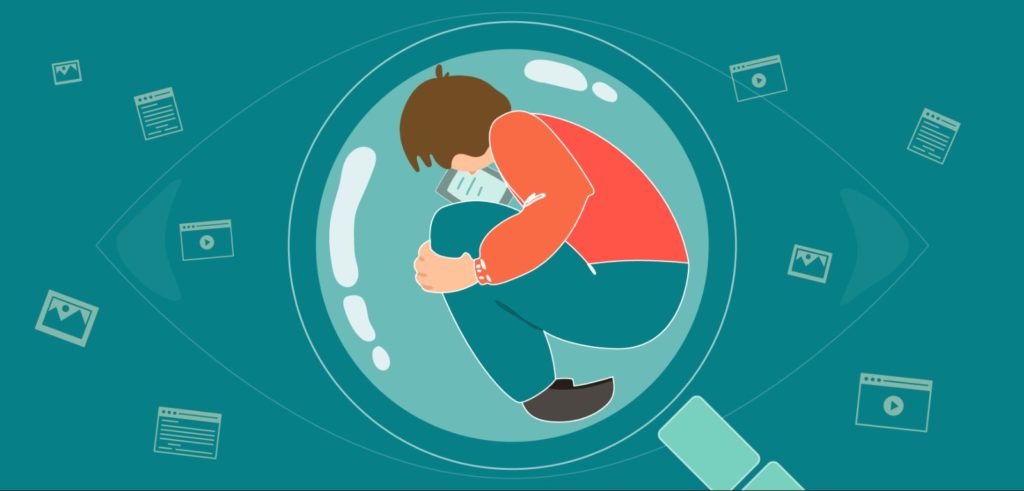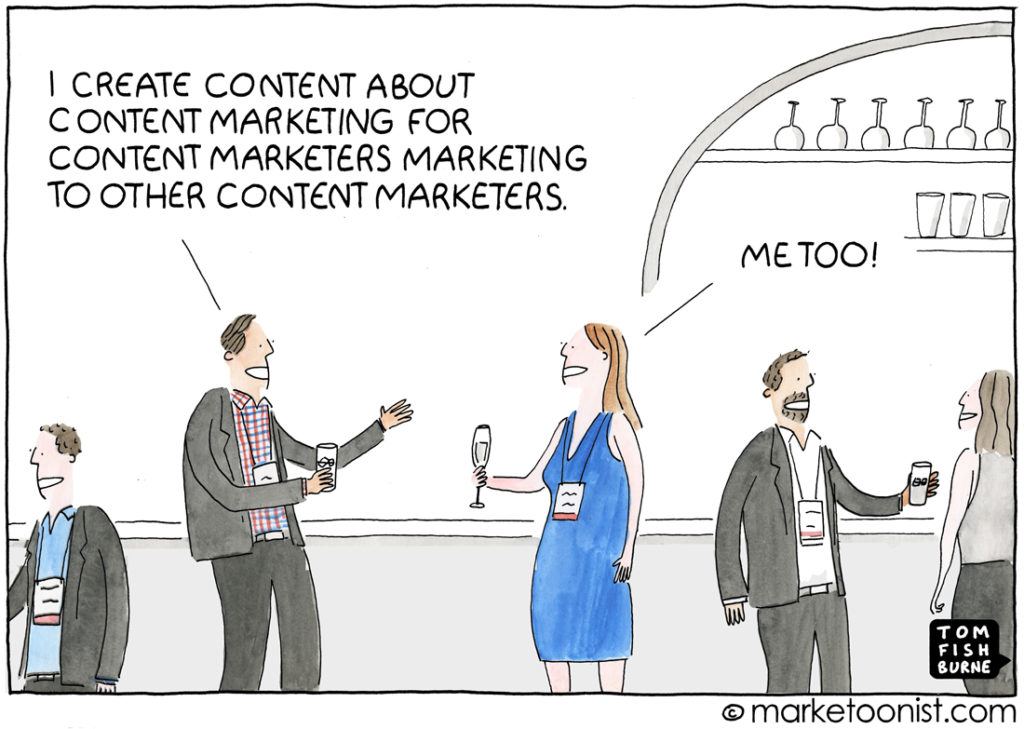
Courtesy of Found
Are you seeing the same old posts on Facebook? Or coming across the same old folks on your LinkedIn newsfeed?
Maybe you’ve repeatedly stumbled across uncannily accurate ads that scare the wits out of you?
Well, beware of the filter bubble. It can narrow your world view, limit your exposure to new and innovative ideas, and reinforce negativity. Unlike other bubbles, this one doesn’t burst unless you make special provisions to change the way you behave online.
What are Filter Bubbles?
A unique phenomenon that was first written about by political activist Eli Pariser in The Filter Bubble, Filter Bubbles can be defined as follows:
A filter bubble is a personal online zone of highly customised content such as news, ads, videos, articles, images, and social media posts. It may include tailored search results, targeted ads, and related videos, as well as prioritized newsfeed content from specific individuals or organisations that we frequently engage with online.
What this means is that the more you consume and engage with certain types of content, the more such stuff are going to pop up on your screens or appear in your feeds.
Doing so on a regular basis would result in opposing viewpoints, contrary arguments and random and novel ideas being sieved out of your screens. Over time, you will find yourself in an online echo chamber, where the only ‘voices’ you hear are those which you agree with.
Aftermath of Algorithms
Governed by algorithms like Facebook’s EdgeRank, Google’s Hummingbird and the cookie crumbs we leave behind each website that we visit, our online actions will result in us seeing more of the same.
The same applies on all other social networks, including LinkedIn (ever notice the same people engaging and liking the same posts), Twitter, YouTube, Pinterest and more.
Facebook’s recent announcement on the Facebook newsfeed changes favouring posts from friends and family members seem to contribute even more greatly to the Filter Bubble effect. I guess this is why some of us appear to have experienced the Groundhog Day or Edge of Tomorrow effect (ie haven’t we seen that post before?)

In other words, the more we visit certain websites, “like” certain Facebook posts, comment on certain blogs, or retweet certain tweets, the more likely we are to see the same kind of posts from the same kind of friends or same kind of brands.
Thus, the reason why we keep seeing all that nasty bad news or gossipy sensational stuff ad nauseum.
It is also how controversial and incendiary stuff rises in prominence in your feed, especially if you aggressively comment and like on posts like these.
Such behaviors become a self perpetuating, ever constricting cycle. In other words, “likes” attract like.
The Remarketing Roundabout
Wait there is more. Have you heard of remarketing? No?
Well, according to Google…
“Remarketing helps you reach people who have visited your website or used your app. Previous visitors or users can see your ads as they browse websites that are part of the Google Display Network, or as they search for terms related to your products or services on Google.”
In other words, companies and brands are using your online behaviours to serve you the most appropriate ads based on what you have searched for on Google. By doing so, they increase the chances of you clicking on a “targeted” ad that is customised to your specific wants, needs or desires.
That’s not all.
Remarketing (also known as retargeting) also works on social networks like Facebook. This is why we sometimes find uncannily precise ads on Facebook even though we swore that we did not look for or access such content there.
Thus, the more we consume, comment on, and share an “OMG, this is truly bad crap” kind of post, the more our news-feeds, searches and online ads will be populated by such content.
Confirmation Bias + Echo Chamber
Beyond the filtering effects of online algorithms, you need to be mindful of two other socio-psychological phenomenon at play here:
- Confirmation Bias: This is a form of cognitive bias which makes us interpret or seek out new evidence which confirms our earlier biases and beliefs.
- Echo Chamber: This is an aftermath of the filter bubble. It occurs when we filter out views that oppose our current beliefs and values, surrounding ourselves (and our newsfeeds) with news and opinions that reinforce our beliefs.

Courtesy of marketoonist
Ways to Break your Filter Bubble
To escape from this constricting torrent of the “same old” content, take a break from your devices.
Go on a digital detox for a day. Read a book that is of a different subject matter altogether. Meditate. Walk in the park. Call a friend or speak to a stranger on the train.
If you do need to peer at your phone, choose to consume mind enriching stuff. Pull yourself away from endlessly snacking on the empty calories of celebrity gossips, political missteps, or global-calamities-that-you-can’t-do-anything-beyond-bitching-about-them.
Should you interact with others on social networks, try to find folks whom you don’t normally associate with.
Like that eskimo from Alaska, deep sea diver from India, or philosophy professor from Helsinki.
Or a long lost secondary or primary school friend.
Every now and then, remember to clear your cache and cookies. Flush out the familiar so that you can venture into the unknown.
Beyond this, you can also opt for the “See Latest” mode on your Facebook or LinkedIn newsfeeds.
And when you’re using search engines like Google or Bing, choose the incognito or private mode.
Choose What You Consume
Always remember to seek, search and consume what’s insightful, what’s inspiring, and what’s illuminating.
By doing so, you’ll be able to break free from a narrow world of worthless gossips, bad news and scandalous happenings. You will also expand your vistas, broaden your horizons, and drink more richly from the wellsprings of wisdom from the world.
Expanding your views beyond what’s familiar and trusted will be uncomfortable.
You will come across opinions that are diametrically opposite from yours. You will encounter strange folks with distinctly different philosophies and ideologies from you. You may also experience a greater ‘cognitive dissonance’ as your mind seeks to wrestle with foreign concepts.
Take it in your stride. Engage more critically with what’s new, and let your rational mind do the thinking.
Go ahead and do it today. Escape from the tyranny of digging ever deeper into the same old digital debris.
Break free from your algorithm and burst that filter bubble!

the term “consume” seems concerningly misused – most producers uses to consider consumers as synonymous to idiots, and i don’t consider myself as idiot
Thanks for your comment! What term would you use in place of consume then?